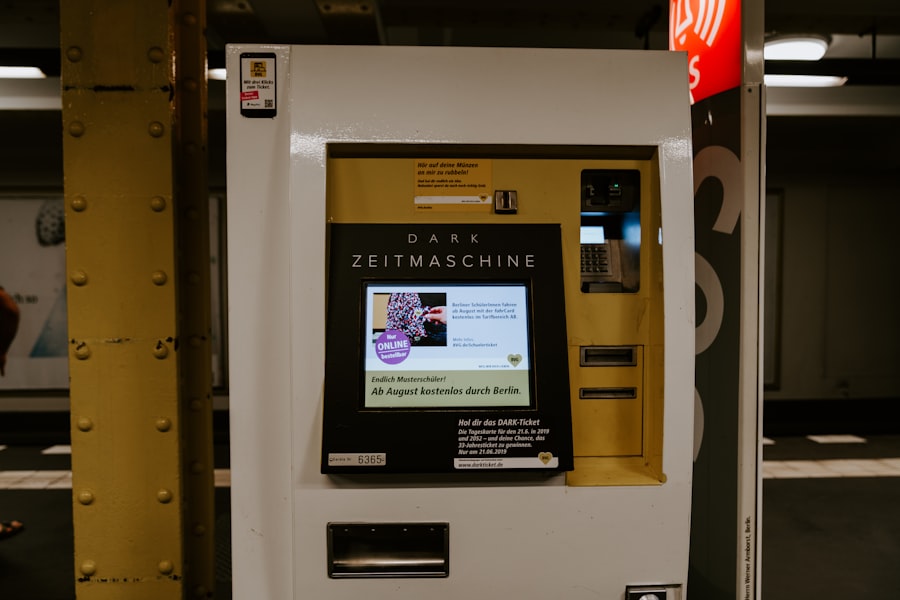Blockchain technology has emerged as a revolutionary force in various sectors, fundamentally altering how data is stored, shared, and secured. At its core, a blockchain is a decentralized digital ledger that records transactions across multiple computers in such a way that the registered transactions cannot be altered retroactively without the consensus of the network. This decentralized nature ensures that no single entity has control over the entire chain, which enhances security and trust among users.
Originally developed as the underlying technology for cryptocurrencies like Bitcoin, blockchain has since found applications in numerous fields, including finance, supply chain management, healthcare, and, notably, voting systems. The potential for blockchain to transform traditional voting processes is particularly compelling, as it promises to address long-standing issues related to transparency, security, and accessibility. The allure of blockchain technology lies in its ability to create a tamper-proof record of transactions.
Each block in the chain contains a list of transactions and is linked to the previous block through cryptographic hashes, forming an immutable chain. This structure not only ensures data integrity but also allows for real-time auditing and verification of transactions. In the context of voting, this means that each vote cast can be securely recorded and verified without the risk of manipulation or fraud.
As governments and organizations around the world grapple with the challenges of modern electoral processes, the integration of blockchain technology into voting systems presents an innovative solution that could enhance democratic participation and restore public trust in electoral outcomes.
Key Takeaways
- Blockchain technology is a decentralized and secure way of recording transactions, making it a potential solution for improving voting systems.
- Traditional voting systems face challenges such as fraud, manipulation, and lack of transparency, which can be addressed by implementing blockchain technology.
- Blockchain ensures transparency and security in voting by providing a tamper-proof and immutable record of votes, making it difficult for any single entity to manipulate the results.
- Case studies of blockchain-based voting systems, such as those in Estonia and West Virginia, have shown promising results in terms of security, efficiency, and accessibility.
- The potential impact of blockchain on voter turnout and participation is significant, as it can make the voting process more convenient, secure, and accessible to a wider range of voters.
Challenges in Traditional Voting Systems
Traditional voting systems have long been plagued by a myriad of challenges that undermine their integrity and effectiveness. One of the most significant issues is voter fraud, which can take many forms, including impersonation at the polls, double voting, and tampering with ballots. While instances of widespread voter fraud are relatively rare in many democracies, even isolated cases can erode public confidence in the electoral process.
Additionally, traditional voting methods often rely on outdated technology and manual processes that are susceptible to human error. Miscounts, lost ballots, and logistical failures can all contribute to inaccuracies in election results, leading to disputes and challenges that further complicate the democratic process. Another critical challenge is accessibility.
Many voters face barriers that prevent them from participating fully in elections, whether due to physical disabilities, geographic isolation, or lack of access to transportation. In some cases, polling places may be located far from where voters live, making it difficult for them to cast their ballots. Furthermore, traditional voting systems often require voters to navigate complex registration processes and identification requirements that can disenfranchise eligible citizens.
These challenges not only diminish voter turnout but also disproportionately affect marginalized communities, raising concerns about equity and representation in the democratic process. As such, there is a pressing need for innovative solutions that can address these systemic issues and promote greater inclusivity in elections.
How Blockchain Ensures Transparency and Security in Voting

Blockchain technology offers a robust framework for enhancing transparency and security in voting systems. By utilizing a decentralized ledger, every transaction—each vote cast—can be recorded in a manner that is both secure and publicly verifiable. This transparency is crucial for building trust among voters, as it allows them to independently verify that their votes have been counted accurately without compromising their anonymity.
The use of cryptographic techniques ensures that once a vote is recorded on the blockchain, it cannot be altered or deleted without consensus from the network participants. This immutability serves as a powerful deterrent against potential fraud or manipulation. Moreover, blockchain’s inherent security features significantly reduce the risk of cyberattacks that have become increasingly prevalent in today’s digital landscape.
Traditional voting systems often rely on centralized databases that can be vulnerable to hacking or unauthorized access. In contrast, a blockchain-based voting system distributes data across a network of nodes, making it exceedingly difficult for malicious actors to compromise the integrity of the election. Each node maintains a copy of the entire blockchain, ensuring that even if one node is attacked or fails, the overall system remains intact and functional.
This decentralized approach not only enhances security but also fosters resilience against potential disruptions, thereby safeguarding the democratic process.
Case Studies of Blockchain-based Voting Systems
Several countries and organizations have begun experimenting with blockchain-based voting systems to assess their viability and effectiveness in real-world scenarios. One notable example is Estonia, which has been at the forefront of digital governance since implementing its e-Residency program in 2014. Estonia’s online voting system allows citizens to cast their votes securely from anywhere in the world using blockchain technology to ensure transparency and integrity.
The system has been used successfully in multiple elections since its inception, demonstrating how blockchain can facilitate secure remote voting while maintaining voter anonymity. Another compelling case study comes from West Virginia in the United States, where a pilot program was launched to enable overseas military personnel to vote using a blockchain-based application during the 2018 midterm elections. The initiative aimed to address the challenges faced by service members who often encounter difficulties accessing traditional voting methods while deployed abroad.
By leveraging blockchain technology, West Virginia was able to provide a secure and efficient means for these voters to participate in the electoral process. The pilot program garnered attention for its innovative approach to enhancing voter accessibility and engagement while showcasing the potential of blockchain to revolutionize traditional voting practices.
Potential Impact of Blockchain on Voter Turnout and Participation
The integration of blockchain technology into voting systems holds significant promise for increasing voter turnout and participation in elections. One of the primary advantages of blockchain-based voting is its potential to simplify the voting process for citizens. By enabling remote voting through secure online platforms, individuals who may face barriers to accessing traditional polling places—such as those with disabilities or those living in remote areas—can more easily cast their votes.
This increased accessibility could lead to higher levels of engagement among underrepresented populations who have historically faced challenges in participating in elections. Furthermore, the transparency and security offered by blockchain technology can help restore public trust in electoral processes. Many citizens express skepticism about the integrity of traditional voting systems due to concerns about fraud or mismanagement.
By implementing a transparent and verifiable system powered by blockchain, governments can demonstrate their commitment to fair elections and encourage greater participation among voters who may have previously felt disillusioned or disenfranchised. As more individuals feel confident that their votes will be accurately counted and protected from tampering, it is likely that overall voter turnout will increase, leading to more representative outcomes in democratic processes.
Addressing Concerns and Criticisms of Blockchain Voting

Despite its potential benefits, the adoption of blockchain technology in voting systems is not without its critics and concerns. One major issue revolves around digital literacy and access to technology. While blockchain can enhance accessibility for some voters, it may inadvertently disenfranchise others who lack the necessary skills or resources to navigate digital platforms effectively.
This concern is particularly relevant for older populations or individuals from lower socioeconomic backgrounds who may not have reliable access to smartphones or computers. Ensuring that all citizens can participate equally in elections remains a critical challenge that must be addressed alongside any technological advancements. Additionally, there are concerns regarding the potential for cyberattacks on blockchain-based voting systems.
While blockchain’s decentralized nature offers enhanced security compared to traditional systems, it is not entirely immune to threats. Sophisticated cybercriminals could potentially exploit vulnerabilities within the software or target individual nodes within the network. To mitigate these risks, it is essential for governments and organizations implementing blockchain voting systems to invest in robust cybersecurity measures and conduct thorough testing before deployment.
Public education campaigns will also play a vital role in ensuring that voters understand how these systems work and feel confident in their security.
The Future of Blockchain in Elections
Looking ahead, the future of blockchain technology in elections appears promising but requires careful consideration and planning. As more countries explore innovative approaches to enhance electoral integrity and participation, blockchain could become an integral part of modern democratic processes. However, successful implementation will depend on collaboration among governments, technology providers, and civil society organizations to develop standards and best practices for blockchain-based voting systems.
Establishing clear guidelines will help ensure that these systems are secure, accessible, and transparent while addressing concerns related to equity and inclusivity. Moreover, ongoing research and development will be crucial for refining blockchain technology’s application in voting contexts. As new advancements emerge—such as improvements in scalability and interoperability—there will be opportunities to enhance existing systems further and expand their reach.
Engaging with stakeholders from diverse backgrounds will also be essential for understanding the unique needs and challenges faced by different communities when it comes to voting. By fostering an inclusive dialogue around blockchain’s role in elections, we can work towards creating a more equitable democratic process that empowers all citizens.
The Role of Blockchain in Shaping the Future of Democracy
In conclusion, blockchain technology has the potential to significantly reshape the landscape of democratic participation by addressing many challenges inherent in traditional voting systems. Its ability to provide transparency, security, and accessibility makes it an attractive option for modernizing electoral processes worldwide. As we move forward into an increasingly digital age, embracing innovative solutions like blockchain could help restore public trust in elections while encouraging greater voter engagement across diverse populations.
However, realizing this potential will require careful consideration of various factors—including digital literacy, cybersecurity risks, and equitable access—to ensure that all citizens can participate fully in democracy. By fostering collaboration among stakeholders and prioritizing inclusivity in the development of blockchain-based voting systems, we can work towards creating a more robust democratic framework that empowers individuals and strengthens civic engagement for generations to come. Ultimately, as we explore new frontiers in technology and governance, blockchain stands out as a transformative force capable of enhancing democracy’s resilience and adaptability in an ever-evolving world.
While exploring the impact of blockchain on traditional voting systems, it’s also insightful to consider how technology is revolutionizing other sectors. For instance, the Samsung S22 Ultra is a prime example of technological advancement in the smartphone industry, enhancing user experience with its powerful features. You can learn more about this device and its capabilities by reading the article, “Unlock the Power of the Galaxy with the Samsung S22 Ultra.” This could provide a broader perspective on how modern technology, much like blockchain, is continuously reshaping our interaction with digital tools. For more details, visit Unlock the Power of the Galaxy with the Samsung S22 Ultra.
FAQs
What is blockchain technology?
Blockchain technology is a decentralized, distributed ledger system that records transactions across many computers in such a way that the registered transactions cannot be altered retroactively.
How is blockchain disrupting traditional voting systems?
Blockchain is disrupting traditional voting systems by providing a secure and transparent way to conduct elections. It can eliminate the risk of fraud and tampering, increase accessibility, and streamline the voting process.
What are the benefits of using blockchain for voting?
Using blockchain for voting can provide benefits such as increased security, transparency, and trust in the electoral process. It can also reduce the cost and time associated with conducting elections and enable remote and mobile voting options.
What are the challenges of implementing blockchain in voting systems?
Challenges of implementing blockchain in voting systems include concerns about privacy, scalability, and accessibility for all voters. Additionally, there may be resistance to change from traditional voting systems and the need for widespread adoption of the technology.
Are there any real-world examples of blockchain disrupting traditional voting systems?
Yes, there are several real-world examples of blockchain disrupting traditional voting systems, including pilot projects in countries like Estonia and Switzerland, as well as initiatives by companies and organizations to develop blockchain-based voting platforms.

